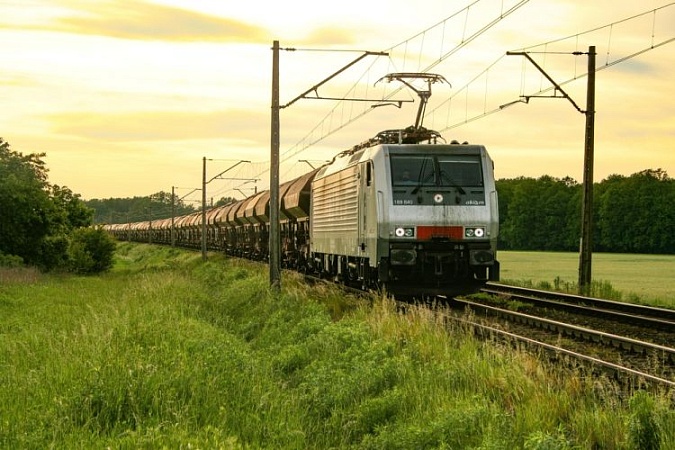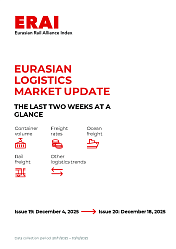As revealed by Polish Office for Rail Transport (UTK) at the end of December 2024, the overall transport work performed by freight trains in 30 monitored European countries amounted to over 206.3 billion tonne-kilometers, marking a 0.7% decline compared to the same period in the previous year.
More than half of rail performance by three countries
Germany, Poland, and France collectively accounted for more than half of Europe’s total rail freight performance. Germany maintained its position as the largest freight rail market with 62.8 billion tonne-kilometers, representing 30.4% of the total. Poland followed with 29.1 billion tonne-kilometers (14.1%), and France with 16.6 billion tonne-kilometers (8.1%).
70% of countries report declines
However, 21 out of the 30 monitored countries reported declines in freight transport volumes. Poland registered a reduction of 1.7 billion tonne-kilometers, equivalent to a 5.5% drop, while Germany saw a decrease of 1.4 billion tonne-kilometers, or 2.2%. Latvia experienced the sharpest drop at 26.3%, largely attributed to sanctions on Russia and Belarus and restrictions on agricultural imports.
Nine countries with rail freight increases
Despite the overall downward trend, nine countries recorded increases in rail freight performance. France led with a growth of 15.1%, followed by Italy with 14.7% and Serbia with 12.3%. These gains were primarily driven by infrastructure improvements, increased intermodal connections, and adjustments in freight logistics.
Here is the list of countries with freight rail increasing in H1 2024 according to UTK:
-
France (+15.1%)
-
Italy (+14.7%)
-
Serbia (+12.3%)
-
Turkey (+7.8%)
-
Croatia (+7.8%)
-
Hungary (+4.6%)
-
Austria (+4.5%)
-
Czech Republic (+2.5%)
-
Slovakia (+0.4%)
The broader decline across Europe reflects ongoing challenges, including geopolitical uncertainties, disruptions in supply chains, and regional economic fluctuations.





